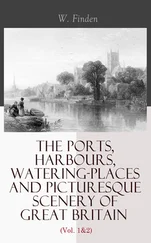'Did you ever hear of any bloody garment having been found?' asked the magistrate.
'No such communication was ever made to me by any member of the police force,' said Whicher. 'I never heard a word of it until some three months after, when I read an account of it in the newspapers.'
Katharine Gream took the stand next, and the drama in the courtroom escalated. She began by asking the court to respect the confidences Constance had made to her, as they would the confidences between a mother and her child: 'from the first she came to me as a daughter'. Then she explained that Wagner had told her in Holy Week, which ran that year from 9 to 16 April, that Constance had confessed to the killing, and wished to make her confession public. Miss Gream had raised the subject with the girl, never mentioning the word 'murder'. She asked her if she 'fully realised what it involved' to give herself up. Constance said that she did. The next week, Constance told Miss Gream that she had carried Saville downstairs while he was sleeping, that she had left the house through the drawing-room window, and that she had used a razor, taken from her father's dressing case 'for the purpose'. She said that 'it' was done 'not from any dislike to the child, but that it was revenge on her stepmother'. Later, she told Miss Gream that she had stolen a nightdress back from the laundry basket, as Whicher had surmised.
Ludlow, who was seeking to establish whether any pressure had been exerted on the girl to confess, asked Katharine Gream what had prompted Constance to give these extra details about the murder. 'I think I asked her if the child cried to her for mercy,' said Miss Gream. Ludlow asked what conversation preceded this. 'I was trying to point out the greatness of the sin in God's sight, and I was pointing out to her the things that would aggravate the sin in God's sight.'
'After all the conversation between you,' asked Ludlow, 'did you at any time offer her any inducement to give herself up?'
'Never,' said Miss Gream. 'Never.'
When Wagner took the witness box he folded his arms across his chest and asked ('in a whining tone', said the Somerset and Wilts Journal ) to read a brief statement he had written. Ludlow said he could not do so until he had given his evidence. None the less, as soon as the examination began Wagner stated: 'All the communication I have had with Miss Constance Kent was made to me under the seal of confession, and therefore I must decline to answer any question that would involve a breach of that secrecy.'
This was strong stuff. The Roman Catholic Church might hold the confessional to be sacred, but the Anglican Church was subject to the laws of the state. The spectators hissed their disapproval.
Ludlow warned him: 'You have sworn, Mr Wagner, before God, that you will tell the truth, the whole truth and nothing but the truth in this inquiry.'
'My duty to God,' returned Wagner, 'forbids me to divulge anything received in confession.' Again the courtroom was filled with hissing.
All that he could disclose, Wagner said, was that three or four weeks earlier Constance had asked him to communicate to Sir George Grey, who had replaced Cornewall Lewis as Home Secretary in 1861, that she was guilty of the Road murder. He insisted that he had on no occasion induced her to confess. Ludlow did not pursue Wagner's defiance over the confessional - that could wait for the trial.
Shortly before six o'clock the last witness was dismissed and Constance was asked if she had anything to say. She lightly shook her head. Ludlow committed her for trial, and she quietly left the dock. At seven o'clock she was sent back to Devizes gaol.
Almost three months passed before Constance was tried for murder. In the interim Williamson continued to round up witnesses and evidence in case she changed her plea. In late May Dr Mallam, Saville's godfather, wrote to Scotland Yard from Holloway, north London, offering to talk to the detectives. When Williamson interviewed him, Mallam said he had witnessed the way in which the children of Samuel Kent's first wife were slighted by their father and their stepmother. If the police wanted corroboration, he suggested they ask Mary Ann. He also described the conversation between himself, Parsons, Stapleton and Rodway after Saville's funeral, in which they had all agreed that Constance was guilty. 'Dr Mallam also informed me,' wrote Williamson, 'that he had heard that a man named Stephens now residing in Frome and who was formerly gardener in Mr Kent's family, had stated that Miss Constance on an occasion about 18 months before the murder asked him how she could get a razor out of her father's dressing case.' This implausible rumour may have had some substance, since a man named William Stevens was among the few new witnesses listed to appear at Constance's trial in July.
Williamson went to Dublin on 29 June to subpoena Emma Moody. He went to Oldbury-on-the-Hill, Gloucestershire, two weeks later to summon Louisa Long, formerly Hatherill, the other schoolfriend Whicher had interviewed in 1860.
The Reverend Wagner, far from being thanked for helping to solve the crime, became a scapegoat for the press and the public. He was excoriated in the English newspapers, in the House of Commons and in the House of Lords (Lord Ebury said the 'scandal' of his involvement with Constance Kent revealed how the Church of England was being 'undermined and destroyed'). By presenting himself as the keeper of Constance's secrets, Wagner drove some into a frenzy of frustration. Gangs in Brighton tore down confessional notices at St Paul's, where Wagner preached, assaulted him in the street and threw objects at the windows of St Mary's Home. On 6 May an anonymous correspondent to the Standard asked what had become of the PS1,000 bequest that Constance had received on her twenty-first birthday, in February. Wagner's solicitor replied that Constance had tried to hand over PS800 of the inheritance to St Mary's, but the clergyman had refused it. On the night before they set off for Bow Street, she stuffed the money into a collection box at St Paul's. Wagner found it there the next day, and notified the Home Secretary. This story was confirmed by Rowland Rodway, who wrote to the newspapers to say that Wagner had given the money to Samuel Kent to use on his daughter's behalf.
The Road Hill case had become a battleground for the great religious controversy of the century, the fight between the High and Low elements in the Anglican Church. The Reverend James Davies argued in a pamphlet that Constance Kent's confession proved the value of monastic, Anglo-Catholic institutions. St Mary's, he said, had inspired the girl to confess: 'the devoted lives, the self-denying discipline which she saw around her, and the very atmosphere which she breathed within the holy retreat, subdued, and melted, and moulded her, as a preparation. Then when the heart is softened , it must be opened .' The semi-erotic tones in which Davies described the girl's surrender to God recalled the raptures of the female Catholic saints rather than the sober piety of a Protestant heroine.
In reply, the congregational minister Edwin Paxton Hood published a pamphlet that cast doubt on the substitute religious families to which a young woman might 'submit herself' without her natural family's assent - High Church practices could undermine the authority of the Victorian home. Paxton Hood was impatient with the romance that had come to surround Constance Kent: 'There is nothing at all wonderful about her or her crime, or her five years' silence, or her confession, except that she was very cruel, very close, and very callous. And much as she was she probably is. Her confession does not exalt her; and we decline to accept her either as a model penitent or, as has been attempted, as a heroine. She is simply a very wicked young woman.'
Читать дальше












